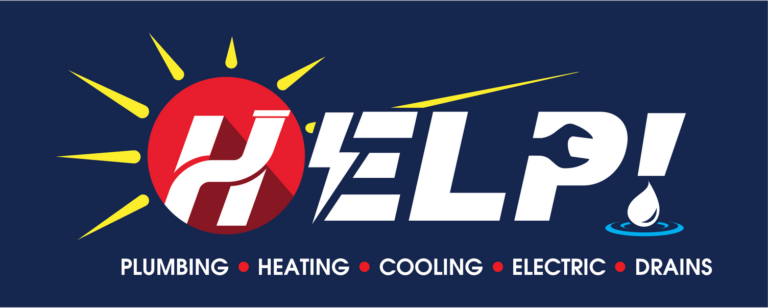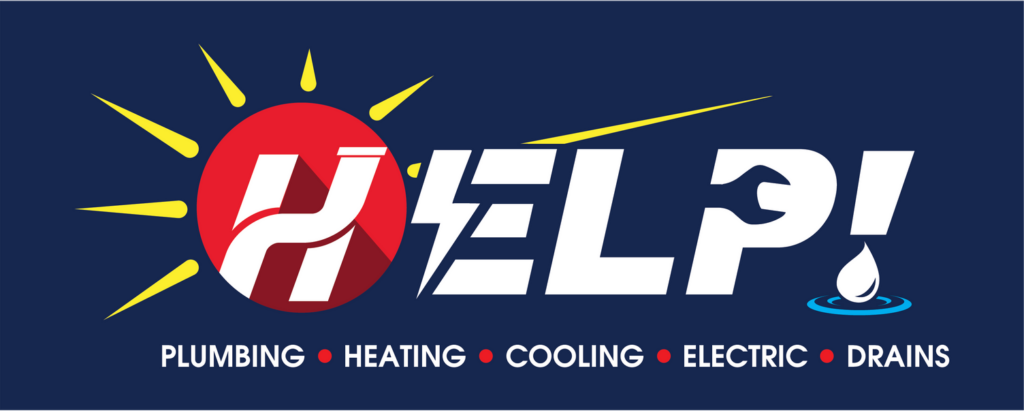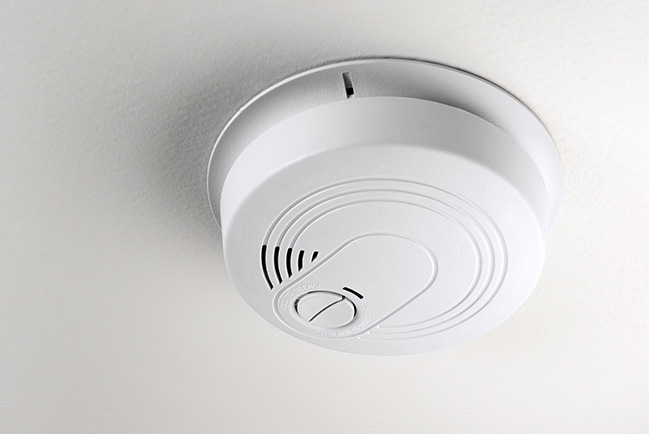
Every year, fire departments in the U.S. respond to almost 400,000 house fires that result in thousands of deaths, billions in direct property damage, and over 10,000 injuries (NFPA). On average, seven people die in a fire in a home every day.
The good news is that most fires are easily prevented by forethought, knowledge, and safe behavior. The bad news is that home fires increase in the fall and peak during holidays and winter months. Take the time this fall to inspect your home for fire safety hazards so you can enjoy a safe and stress-free holiday season at home.
Common Home Fire Hazards and How to Find Them
According to the NFPA, the leading cause of home structure fires and home fire injuries is cooking, while smoking is the leading cause of home fire deaths.
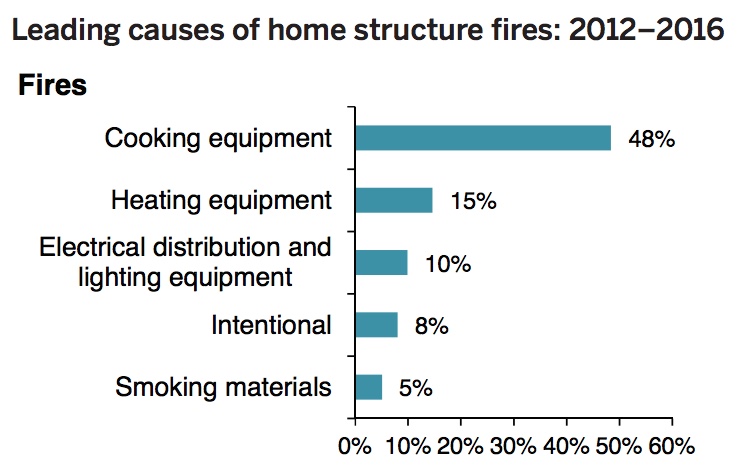
The five main causes of home fires and fire casualties in order are: cooking, heating, electrical distribution, and intentional fire setting.
Keep in mind that the numbers vary from year to year. The rankings above use annual averages from home fires that occurred from 2012 to 2016.
If you notice any of these home fire safety hazards, contact a professional right away.
Cooking
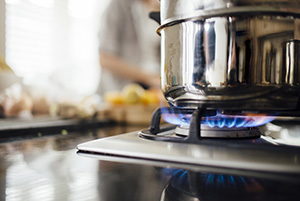
Responsible for about half of all home fires in the United States and an average 172,100 home fires per year, cooking should be carefully considered when inspecting your home for fire hazards (NFPA).
Here are some tips for preventing cooking fires:
- Keep anything flammable like pot holders, paper or plastic packaging, wooden utensils, clothes, and towels away from your stove top and any other heat source.
- Maintain a 3-foot no-play zone for children around your stove and stovetop.
- Do not cook when you are tired, drunk, or otherwise impaired. According to the NFPA, about one-third of fatal home cooking fire victims were asleep at the time of injury.
- Never leave your cooking unattended. The leading cause of fires in the kitchen is unattended cooking. If you have to leave the kitchen, turn your heating equipment off.
- Don’t wear loose or highly flammable clothing while cooking.
- Do not have any clutter around the stove or oven, such as oven mitts, wooden utensils, and food packaging.
- Have the lids to pots and pans nearby so you can smother small fires if necessary.
- Teach your kids to never come within 3 feet of the stove by putting a “No Play” mat on the floor. Consider cooking on your back burners so that your pot and pan handles are not dangling over the edge where they can be knocked into or pulled down.
- If there is a fire, call 9-1-1 immediately and leave the kitchen. Close the door behind you to contain the fire. Never put out a grease fire with water. Keep a lid nearby to smother the fire. Cover the pan and turn off the heat. Flour can also be used to smother a grease fire. If there is an oven fire, close the door and turn off the heat.
- Make sure there is a working fire extinguisher nearby.
Heating
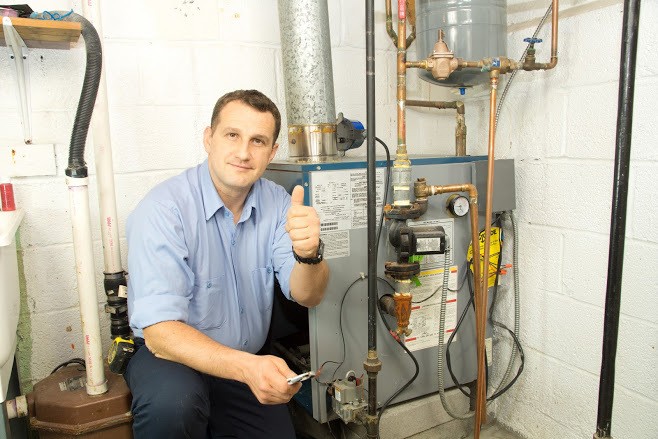
Heating equipment the second most common cause of home fire deaths. On average, furnaces and other heating equipment are involved in 1 out of every 6 home fires and 1 out of every 5 home fire deaths. Fireplaces and space heaters are common causes of home fires.
- Your space heater, fireplace, furnace, and any other heat source should always have a minimum 3-foot clearance on all sides from anything that could burn.
- Plug space heaters directly into outlets and on a nonflammable surface. Don’t use an extension cord.
- Do not place the space heater on any potentially flammable surfaces, such as carpets and rugs.
The best way to make sure your heating equipment is safe and hazard-free is by scheduling professional heating maintenance in the fall. Contact HELP today to schedule your comprehensive heating tune-up and cleaning.
Sign up for the HELP Club to receive 3 annual tune-ups a year (air conditioning, heating, and plumbing) plus many other benefits!
Electrical
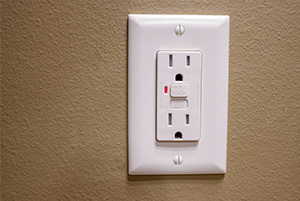
Your electrical system is essential for modern living and survival, but can also be a dangerous fire hazard. If your breakers keep tripping, outlets are hot to the touch, lights are dimming/flickering, you could have a dangerous electrical situation on your hands.
The most important thing you can do to prevent electrical fires is to have your home routinely inspected by a qualified electrician and always have electrical work done by a professional.
Keep these electrical safety tips in mind:
- Do not overload your outlets.
- Do not use extension cords as a permanent solution.
- Only plug one heating source (space heater, grill, toaster, microwave, etc.) into a receptacle outlet at a time.
- Plug microwaves, toaster ovens, and appliances directly into the wall outel; do not use an extension cord or surge protector
- Test all AFCIs and GFCIs once every 30-90 days. Learn how to test your AFCIs and GFCIs at the end of this article.
- Keep cords tucked away and away from walk areas; do not have cords running under rugs.
- Keep cords tucked away and away from walk areas; do not have cords running under rugs.
- Do not use extension cords for extended periods of time. Have an trusted electrician outlets if you need more.
- Make sure your light fixtures are using bulbs with the appropriate wattage. There is normally a sticker on the fixture that says what the maximum wattage is.
- Only purchase electrical products that have a label from a nationally recognized testing laboratory, such as UL (Underwriters Laboratories).
- Contact a qualified electrician right away if you experience flickering/dimming lights, strange smells near electrical equipment, or outlets and switches that are warm to the touch. These can indicate that a wiring upgrade is needed.
- Learn electrical safety tips for babies and young children.
Make sure you schedule a professional electrical safety inspection every year to check for electrical hazards and inefficiencies. Your certified electrician will
Candles and Cigarettes
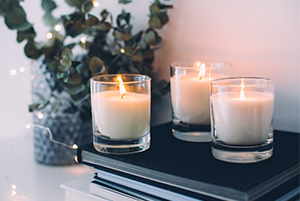
They are great for decoration and smell delightful, but real candles present a real fire hazard.
- Never leave children unattended in a room with a lit candle or cigarette.
- Keep lit candles, lighters, and matches out of reach of children.
- Keep candles at least 12 inches away from anything that can burn.
- Blow out candles when you leave the room or go to bed. Keep candles away from the bed area.
- Make sure candles are stable and won’t fall over. Keep them away from edges or other places where they can jostled.
- If you must smoke, take it outside. Always use an ashtray.
- Consider switching to flameless scented candles. They are safe and smell great too!
Check Your Smoke and Carbon Monoxide Detectors
According to the American Red Cross, “having a working smoke alarm reduces one’s chances of dying in a fire by nearly half.”
There should be smoke and carbon monoxide detectors located on every floor of your house and outside of every sleeping area.
Check your smoke alarms every month by pressing the test button and replace any alarms that are over 10 years old. Check your air filters every month as well!
If your smoke detectors are not working in your home, give HELP a call.
Contact HELP Plumbing, Heating, Cooling and Drains at [site_info_phone_number] for all your plumbing and HVAC needs in Cincinnati, Northern Kentucky, and West Harrison, Indiana.

